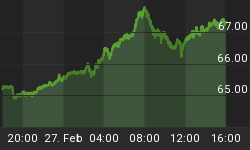During the Christmas Shopping season all eyes are on the American consumer. If he spends lavishly, all is well; if he does not, disaster looms. In fact, Wall Street economists are so obsessed with consumption that they have hopelessly confused the tail with the dog.
Consumption, over the long term, is only possible to the extent that there is production. It is not through financial courage and resiliency that Americans consume. The desire to do so is infinite and omnipresent. It exists equally from the wealthiest of kings to the poorest of beggars. Hunger itself will not put food on the table. Only production can transform abstract demand into genuine purchasing power.
Shopping is possible only to the extent that goods are available for sale. Therefore an accurate assessment of economic performance or wealth creation would be confined to a measure of the production of such goods. The fact that they are consumed is irrelevant. Consumption itself adds no economic value; it simply defines the ends of the production means.
As more of what Americans consume is produced abroad, a strong American holiday shopping season is not indicative of the strength of the American economy, but of those of our trading partners. It is foreign production that enables American consumption, not the reverse. Without it, Christmas in America would resemble Christmas in Whoville (just before the Grinch returned the stolen gifts).
The fact that American consumers irresponsibly go deeper into debt each year to purchase imported products is hardly a situation worth celebrating. Larger trade deficits are not an indication of our prosperity, but of our profligacy. Rising profits for foreign manufactures, and the external accumulation of American interest-bearing IOU's, is an economic failure of colossal proportion.
In fact, the more we borrow to consume today, the less we will be able to consume tomorrow. Before this Christmas season began, American consumers were already in pretty deep holes. If it turns out to be a "good" season, those holes will be a lot deeper. Wall Street, which in this respect acts as if it were in the shovel selling business, will certainly cheer, as its greatest fear is that Americans will look up, comprehend the reality of their situation, and quit digging.
Before they do, protect your wealth and preserve your purchasing power through global diversification. Start by downloading my free research report "The Collapsing Dollar: The powerful Case for Investing in Foreign Equities" at www.researchreport1.com.















